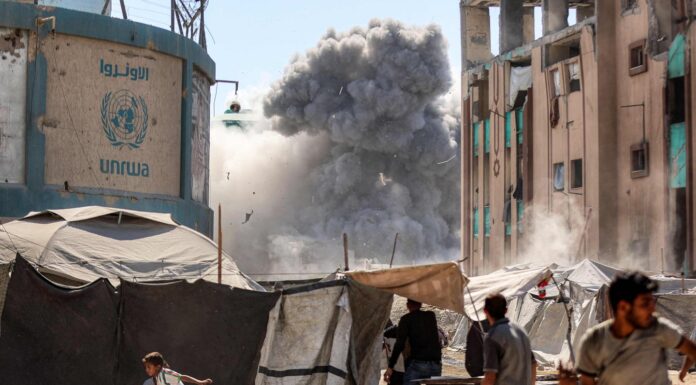
ADVERTISEMENT
Europeans continue to grapple with the idea of a potential summit between US President Donald Trump and Russian President Vladimir Putin in Budapest, which would mark the first time since the start of the full-scale invasion of Ukraine that Putin, a man under sanctions and an arrest warrant, sets foot on European soil.
As they gathered on Monday for a meeting in Luxembourg, foreign affairs ministers of the European Union walked a fine line between supporting Trump’s diplomacy and defending the integrity of the International Criminal Court (ICC), where Putin is wanted for the deportation and transfer of tens of thousands of Ukrainian children.
Hungary remains party to the ICC until its withdrawal takes effect next year. The country has already disregarded an arrest warrant for Israeli Prime Minister Benjamin Netanyahu.
“It’s not nice to see that a person with an arrest warrant (issued) by the ICC is coming to a European country,” admitted High Representative Kaja Kallas.
“The question is whether there is any outcome out of this. This is what we need to see, how these things are going in Budapest, as we have been very firm that Russia only negotiates when they are (under) pressure. So, we hope that President Trump does that.”
Lithuanian Foreign Minister Kęstutis Budrys was blunter in his assessment.
“There is no place for war criminals in Europe,” he said upon arrival.
Nevertheless, Budrys argued that Trump’s diplomatic efforts could be somehow combined with the ICC’s fight against impunity. The court lacks enforcement power and relies exclusively on the goodwill of governments to carry out arrests.
“We have to hold the principles of Europe that we all agreed, and the only place for Putin in Europe is The Hague in front of the tribunal and not in any of our capitals,” he said.
Besides the ICC warrant, member states will also consider granting temporary exemptions to a sweeping airspace ban on Russian aircraft. Alternatively, Putin could take a lengthy detour and enter Hungary through the Western Balkans.
France’s Jean-Noël Barrot said it was “useful” that Washington continued bilateral contacts with Moscow but noted that Putin’s taboo-breaking presence in the bloc’s territory “only makes sense if it leads to an immediate and unconditional ceasefire”.
“Vladimir Putin has an interest in accepting the principle of an immediate ceasefire because time is against him,” Barrot said, referring to the impact of EU sanctions.
The contact line
Monday’s gathering of foreign affairs ministers comes just a few days after Trump spoke with Putin by phone and hosted Zelenskyy at the White House.
After the encounter with Zelenskyy, described as tense by the FT and Reuters, Trump said both sides should “stop at the lines where they are, the battle lines”.
“Go home, stop killing people and be done,” he said on Air Force One.
Washington’s ever-shifting diplomacy has once again stoked fears that Europe’s security architecture risks being decided without Europeans in the room.
“Let’s see what happens, what kind of meeting (is) and where it will be in the end,” said Finland’s Elina Valtonen. “At the end of the day, nobody can decide over the head of Europe what is in the decision-making power of Europe.”
However, unlike the Alaska meeting in August, this time there will be at least one European leader present: Viktor Orbán. The fact that the Hungarian prime minister, who has consistently derailed collective support for Ukraine, is serving as host has further deepened anxiety over the possible outcome of the Budapest summit.
Denmark’s Lars Løkke Rasmussen tried to assuage anxiety, saying Budapest will serve “just as a venue for the meeting”, without agenda-setting powers.
“Nothing I can do about it apart from stressing that we stand with Ukraine and we support the American president’s proposal of a ceasefire at the contact line. Nothing more than that,” Rasmussen told reporters.
“And if the (Budapest summit) is about that, it’s absolutely okay.”
His Spanish counterpart, José Manuel Albares, voiced a similar message as he encouraged Europeans to “ask ourselves what we can do” to step up assistance to Ukraine and uphold its sovereignty and territorial integrity.
“That’s what we need to do today, and not so much asking what others will do,” he said.
Brussels is working on a ground-breaking initiative to use the cash balances of Russia’s frozen assets to issue a €140 billion loan to Ukraine to cover financial and military needs in the long term. In parallel, the 19th package of sanctions against the Kremlin is almost ready to go, with Slovakia as the last holdout over unrelated matters.
Additionally, the EU is mulling new plans to intervene in vessels of Russia’s “shadow fleet”, which are suspected of enabling acts of sabotage against critical infrastructure.












